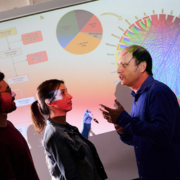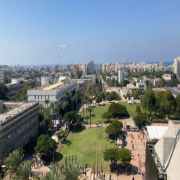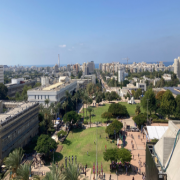Extreme conditions: studying the Dead Sea
A first-of-its-kind summit has given scientists a chance to compare findings about the unique environment of the Dead Sea
The Dead Sea is quite literally a place unlike any other on Earth. Aside from being the lowest inhabited place on the planet, at about 430 meters below sea level, and the saltiest lake known to mankind, it’s also a unique environment and outdoor research lab for scientists.
For example, did you know the plant Calotropis Procera (also known by the ominous name The Apple of Sodom) is poisonous when it grows anywhere in the world except in the Dead Sea region? The area also has air that is cleaner – freer from pollution and allergens – than in other places, and a unique oxygen pressure that is 6% higher than the oxygen pressure at sea level.
Life in extreme conditions
To help the study of this unique natural phenomenon, the Dead Sea Research Institute, established in Masada, aims to encourage and support research across the broadest range of disciplines imaginable.
This year, on January 8th, the Institute hosted a three-day summit, the first of its kind, bringing together experts from all over the world. The event was called Life in Extreme Conditions, and it allowed scientists an opportunity to share their findings and talk about the future of research in the area.
Among the speakers were top TAU professors such as Prof. Dan Peer, the managing director of the Center for Translational Medicine, Prof. Yosi Leshem, from the George S. Wise Faculty of Life Sciences, founder and director of the International Center for the Study of Bird Migration at Latrun and Prof. Ehud Gazit, also from the George S. Wise Faculty of Life Sciences, and academic director of the Blavatnik Center for Drug Discovery.
The conference also included prominent scientists from around the world. For example, Prof. Alan Leshner, former executive publisher of the “Science” family of journals, who spoke about trends in 21st century research, and Prof. Lene Juel Rasmussen, from the Department of Cellular and Molecular Medicine at Copenhagen University in Denmark who spoke about how the body is affected by aging and the process of DNA repair.
If you missed out on attending the conference, don’t worry, you can always watch videos of the talks and events at the Life in Extreme Conditions Summit website.






